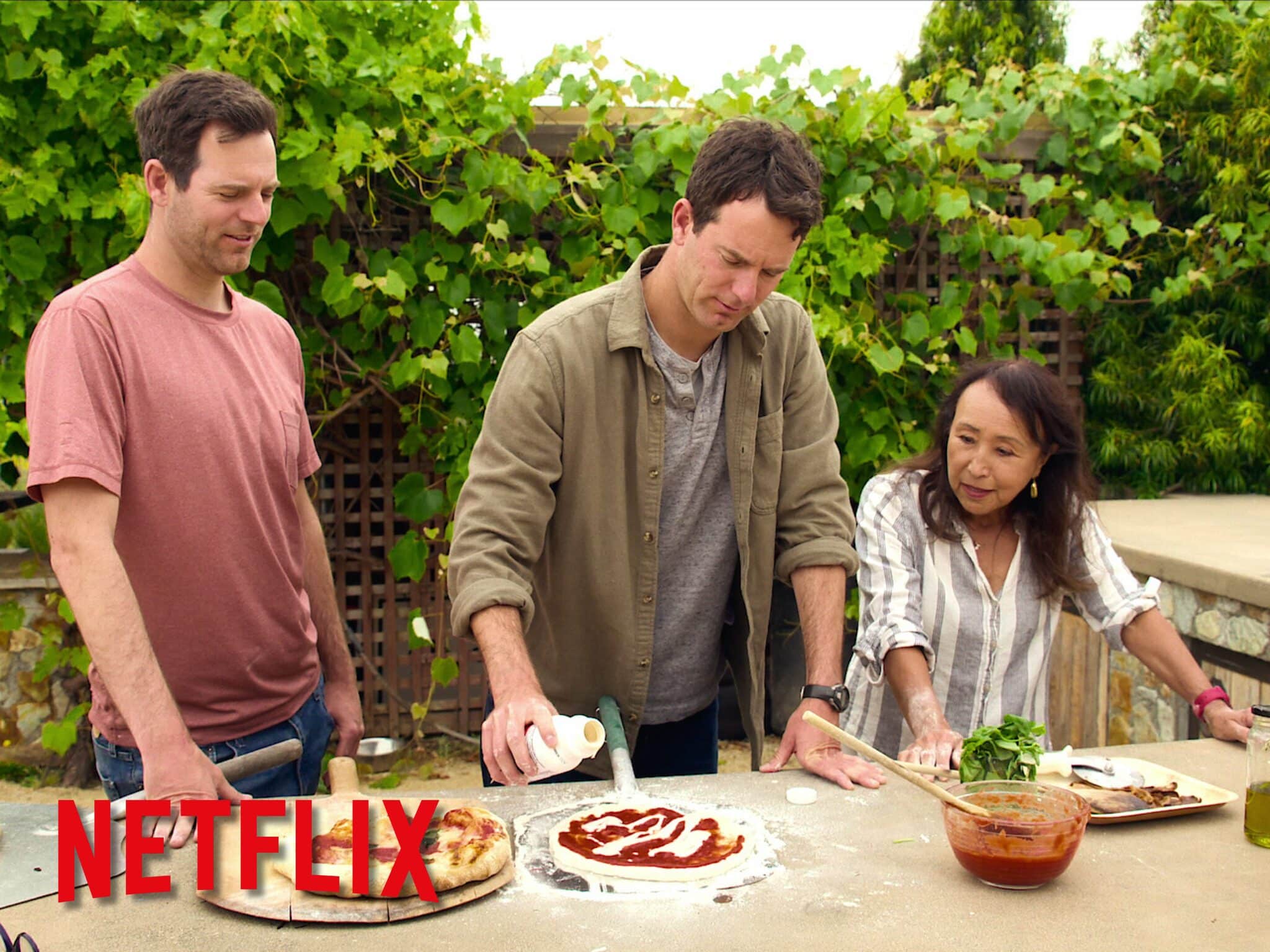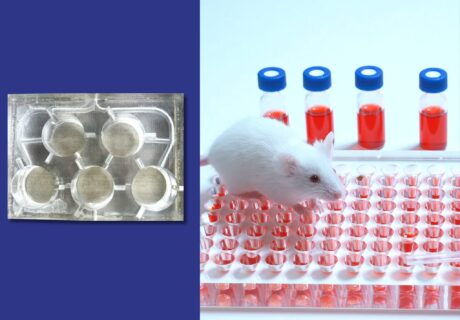6 Mins Read
Just months after a study of identical twins recording the effects of meat-eating and vegan diets, You Are What You Eat, the new Netflix documentary based on the research, highlights the impact of a plant-based lifestyle on health and nutrition.
Since the last Netflix vegan documentary changed the way many people looked at plant-based diets over four years ago, its director Louie Psihoyos is hoping to create a similar effect with his new docuseries, You Are What You Eat: A Twin Experiment, which started streaming on New Year’s Day, just in time for Veganuary.
The series is based on a Stanford study published in late November, which comprised 22 pairs of identical twins where one was put on a vegan diet and the other on a meat-based diet. The research aimed to control the genetic differences and influence of lifestyle factors in the findings, which reflected existing research about the impact of plant-based food on cardiovascular health – heart disease is the leading cause of death for Americans.
The documentary features star turns from vegan cheese queen Miyoko Schinner, Impossible Foods founder Pat Brown, three-Michelin-starred chef Daniel Humm (of Eleven Madison Park fame), US senator Cory Booker, public health nutritionist Tracye McQuirter, Clean Disruption author Tony Seba, alt-meat company Prime Roots founder Kimberlie Le, Wicked Kitchen co-founder Chad Sarno.
Across four episodes, You Are What You Eat highlights the Stanford study, the struggles and successes of the twins, concerns about recommended dietary guidelines, shiting to plant-based cooking, and the study’s results.
What did the study find?
The study’s results have been in the public domain for a month now. Focusing on whole-food plant-based diets and an omnivore diet comprising chicken, fish, eggs, cheese, dairy and other animal-derived foods, it involved the participants being weighed and drawn blood from at three points. The most amount of change was seen in the first month, with those on a vegan diet exhibiting lower levels of LDL cholesterol, insulin and body weight – all factors associated with better cardiovascular health – than those eating meat.
At the beginning of the study, the average baseline LDL cholesterol level was 110.7 mg/dL for vegans and 118.5 mg/dL for meat-eaters. By the end, the former dropped to 95.5 and the latter to 116.1 (the optimal LDL cholesterol level is below 100). Additionally, the vegan participants showed a 20% drop in fasting insulin – higher insulin levels carry a risk of developing diabetes – and lost an average of 4.2 lbs (1.9kg) than the omnivores.
Those eating plant-based food had a higher intake of fibre and lower amount of saturated fat. And since grains are bulkier than meat, people could be more satiated and eat fewer calories. Cutting back on saturated fat, increasing the risk of dietary fibre and losing weight were the three most important things that the vegan participants did to better their heart health, according to lead author Christopher Gardner, who told CNN: “Based on these results and thinking about longevity, most of us would benefit from going to a more plant-based diet.”
What does You Are What You Eat entail?
In the documentary, Gardner describes the Standard American Diet – or “SAD” – as “not very healthy”. The result – a food culture built on processed foods – comes from decades of influential marketing and lobbying from the meat and dairy industry, which has convinced people that these foods are the only way to get the protein and calcium you need.
The docuseries is a deep-dive into health and nutrition, with an in-depth focus on aspects like the inaccuracy of BMI versus using metrics like body composition, microbial and gut bacteria composition, telomeres loss (which slows ageing), visceral fat (which accumulates around your organs), and sexual factors (not unlike what The Game Changers highlighted all those years ago).
“What we put in our mouths is more important than anything else,” says nutritionist and plant-based advocate Michael Greger, adding: “We’re as sure that processed meat causes cancer as we are that cigarette smoke causes cancer and plutonium causes cancer.”
One of the biggest pulls of the new documentary will be the appearance of Humm, who shook the culinary world when transforming his New York City eatery into a mostly plant-based one. After receiving the award for the World’s Best Restaurant, Humm looked at the ingredients that came into the kitchen during Eleven Madison Park’s 20-year run.
“If I’m truly honest, things have changed,” he says. “In the last five years, it’s changed more rapidly than ever before. Things used to be wild, now they’re farm-raised. Things used to be available, now they’re not available. Things used to taste a certain way, now they taste totally different. The quality of our food – it’s changing in front of us, rapidly.”
“I started to realise the impact that animal farming has all over the world. I started to realise what was going on in the fish industry, and how broken it is. I started to feel guilty because I felt that, for a long time, I didn’t question enough exactly where our food was coming from. Like, all of our food. When you have that knowledge, you have the responsibility to speak about it.”
Have the twins stuck to their diets?
You Are What You Eat focuses on four of the twin pairs from the study. Pam and Wendy run a catering business together, Charlie and Michael are cheesemakers and food safety experts, Carolyn and Rosalyn are Filipino sisters (the former is a sports relationship coach, the latter a high-school teacher), and Jevon and John are nursing students with a heavy intake of frozen, processed food.
After the experiment, one of the twins says: “For me, plant-based eating is the direction to go.” All the twins were either omnivores or pescetarians at the beginning, but Netflix followed up with them post-release and found that all of them have since changed the way they consume meat. While still omnivores, Pam and Wendy have cut their meat consumption by half, John and Jevon no longer eat red meat, and Carolyn and Rosalyn are eating more plant-based.
The biggest change was with Charlie and Michael. The former is “almost 90% vegetarian”, save for Chicken soup and some Chinese favourites. The latter, who was a pescetarian, is now fully vegetarian. The shift was driven by concerns about climate change, animals, worker safety, food safety, and health, following the study’s findings.
The results of the research surprised the Stanford researchers themselves, with people eating a vegan diet witnessing an increased life expectancy, reduced visceral fat and heart disease risk, and a heightened sexual drive. “We can solve a lot of issues that are hurting us and cropping our planet by just rethinking what’s at the end of our fork,” says Gardner.
The post Netflix Series ‘You Are What You Eat’: Vegan Diet Benefits Includes Better Sex, Longer Life and a Healthier Heart appeared first on Green Queen.





